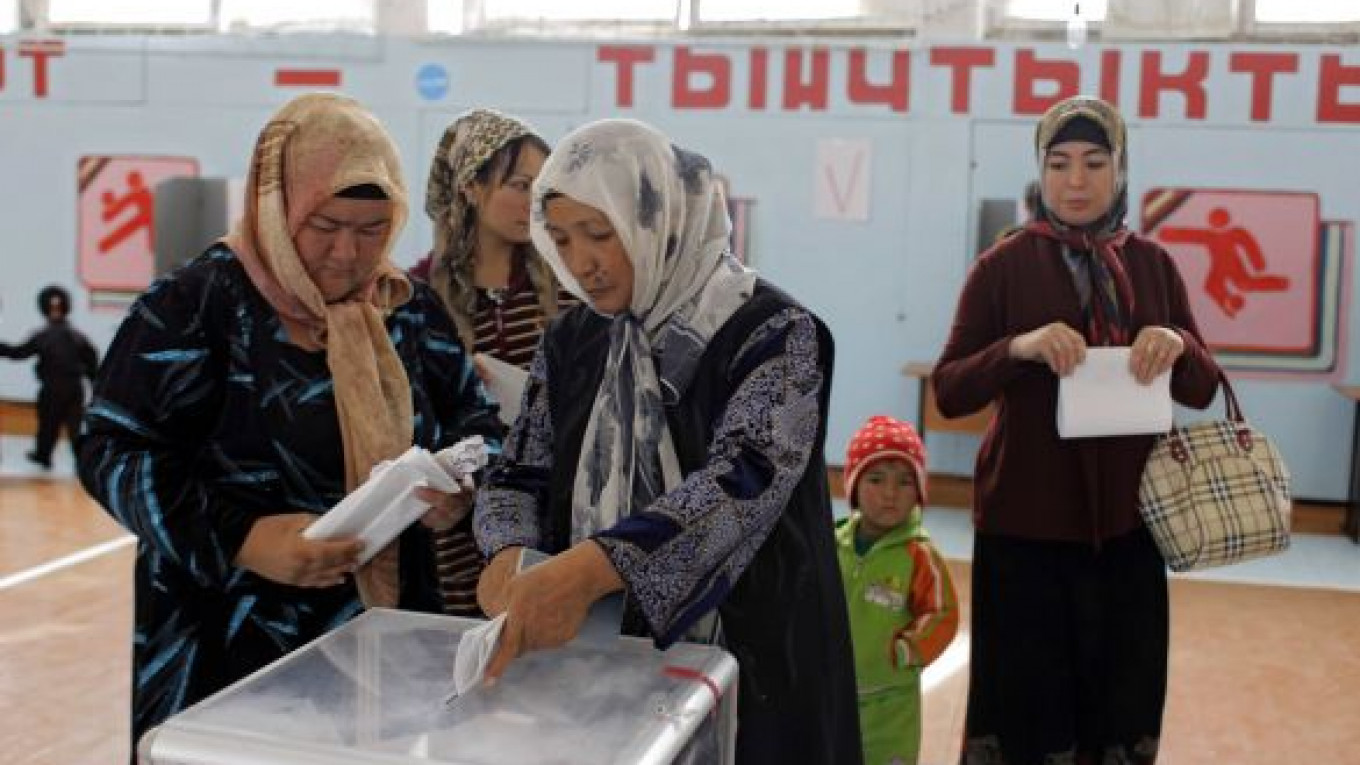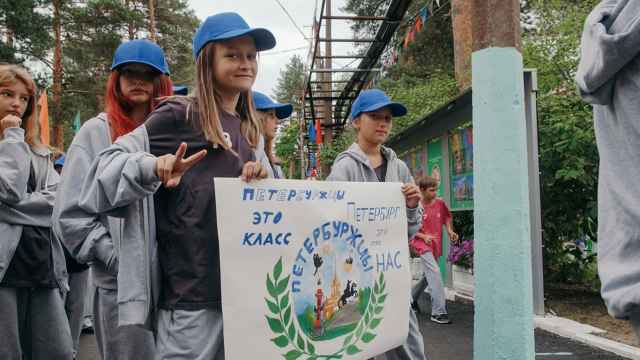BISHKEK, Kyrgyzstan — Kyrgyz voters came out in force Sunday to cast ballots to create the first parliamentary democracy in Central Asia, in an election that many hope can unite the country four months after the worst bloodshed in its modern history.
Unique among elections in Central Asia, voters have no idea which party will win the majority of seats in a new parliament and select a prime minister to knit together a country strained by political and ethnic divisions.
“Our people do not suffer from amnesia. Our people know their history. They will rise quickly to create a parliamentary republic and protect it themselves,” interim leader Roza Otunbayeva said after casting her vote in a music school in Bishkek.
The United States, which operates a military air base in the country to support the war in Afghanistan, has vocally embraced the plan to create the first democracy in a region otherwise ruled by presidential strongmen.
Russia, which also has an air base in Kyrgyzstan, argues that the parliamentary model could expose the country to more violence.
Gennady Danilov, 45, was the first to cast his vote at Polling Station No. 1215, a school in central Bishkek. He folded his ballot paper, 70 centimeters in length, and dropped it into a glass box adorned with the Kyrgyz national crest.
“I’ve never voted before,” he said. “I’m simply fed up with these shambles. I hope that, this time, things might change for the better.”
Otunbayeva, who came to power after a popular revolt toppled President Kurmanbek Bakiyev in April, said about 800 election observers will monitor the vote nationwide. Voters’ thumbs were stamped with indelible ink, a safeguard against multiple voting.
The Organization for Security and Cooperation in Europe has stationed 40 long-term observers around the country, and a further 200 short-term observers arrived for the vote. “This is a remarkable election so far. We hope this openness and transparency will be reflected on polling day, but there is still a lot of work to be done,” said Morten Hoeglund, special coordinator of the OSCE’s short-term observers.
There were some isolated reports of attempted vote rigging. Presidential chief-of-staff Emilbek Kaptagayev said two election officials in the southern region of Jalal-Abad had been charged with issuing extra ballot papers. They face a seven-year prison term, he said.
Twenty-nine parties have registered for the election, of which six were widely expected to attract a large amount of support from Kyrgyzstan’s 2.8 million registered voters — slightly more than half of the country’s total population.
Turnout topped 55 percent by the time polls closed, the Central Elections Commission said. All 120 parliament seats will be filled through popular voting for party lists. No single party will be allotted more than 65 seats, regardless of its election result. Among the front-runners were the Social Democratic Party of Kyrgyzstan, led by Almazbek Atambayev, as well as the Ata Meken party led by Omurbek Tekebayev.
Some parties fiercely oppose the idea of a parliamentary democracy, including Ar-Namys, led by former Prime Minister Felix Kulov. The party’s campaign posters show Kulov shaking hands with President Dmitry Medvedev.
“Kulov is a military man. My husband is a military man. Military rule means order,” said Taisia Krevenkova, 62, after casting her vote in Bishkek.
A Message from The Moscow Times:
Dear readers,
We are facing unprecedented challenges. Russia's Prosecutor General's Office has designated The Moscow Times as an "undesirable" organization, criminalizing our work and putting our staff at risk of prosecution. This follows our earlier unjust labeling as a "foreign agent."
These actions are direct attempts to silence independent journalism in Russia. The authorities claim our work "discredits the decisions of the Russian leadership." We see things differently: we strive to provide accurate, unbiased reporting on Russia.
We, the journalists of The Moscow Times, refuse to be silenced. But to continue our work, we need your help.
Your support, no matter how small, makes a world of difference. If you can, please support us monthly starting from just $2. It's quick to set up, and every contribution makes a significant impact.
By supporting The Moscow Times, you're defending open, independent journalism in the face of repression. Thank you for standing with us.
Remind me later.






